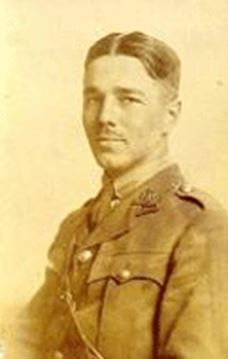
The Reality of War -

THE REALITY OF WAR, 1914-
by Wilfred Owen, one who was there
PROBABLY THE MOST FAMOUS of First World War Poets, Wilfred Owen was initially a pacifist, but driven by guilt, he volunteered in 1915 and joined the army as a lieutenant in the Manchester Regiment. He was posted to France on the last day of 1916 with the Lancashire Fusiliers and was soon involved in the battle of the Somme. Up to this time his poetry had been unremarkable, but he was determined to become a poet after the war. In his new uniform, like thousands of other young men, he was full of boyish enthusiasm for his forthcoming adventures and was soon embroiled in the gruesome adventure of blood, gore, mud and the horror of life in the trenches. His opinions soon altered. He wrote home to his mother: ‘The people of England needn’t hope; they must agitate.’ (10 June, 1917).
Eventually, he was wounded. He was blown up; he was concussed; he suffered trench-
Owen’s poems did not glorify war. That was never his intention. He wished to portray
the pity of war; not the glory. But he did write of his real-
Wilfred Owen 1893 -
He plunges at me, guttering, choking, drowning.
If in some smothering dreams you too could pace
Behind the wagon that we flung him in,
And watch the white eyes writhing in the face;
His hanging face, like a devil’s, sick of sin,
If you could hear at every jolt, the blood
Come gurgling from the froth-
Obscene as cancer, bitter as the cud
Of vile, incurable, sores on innocent tongues
My friend, you would not tell with such high zest
The old lie: Dulce et decorum est.
Pro patria mori.
Ron Dale.